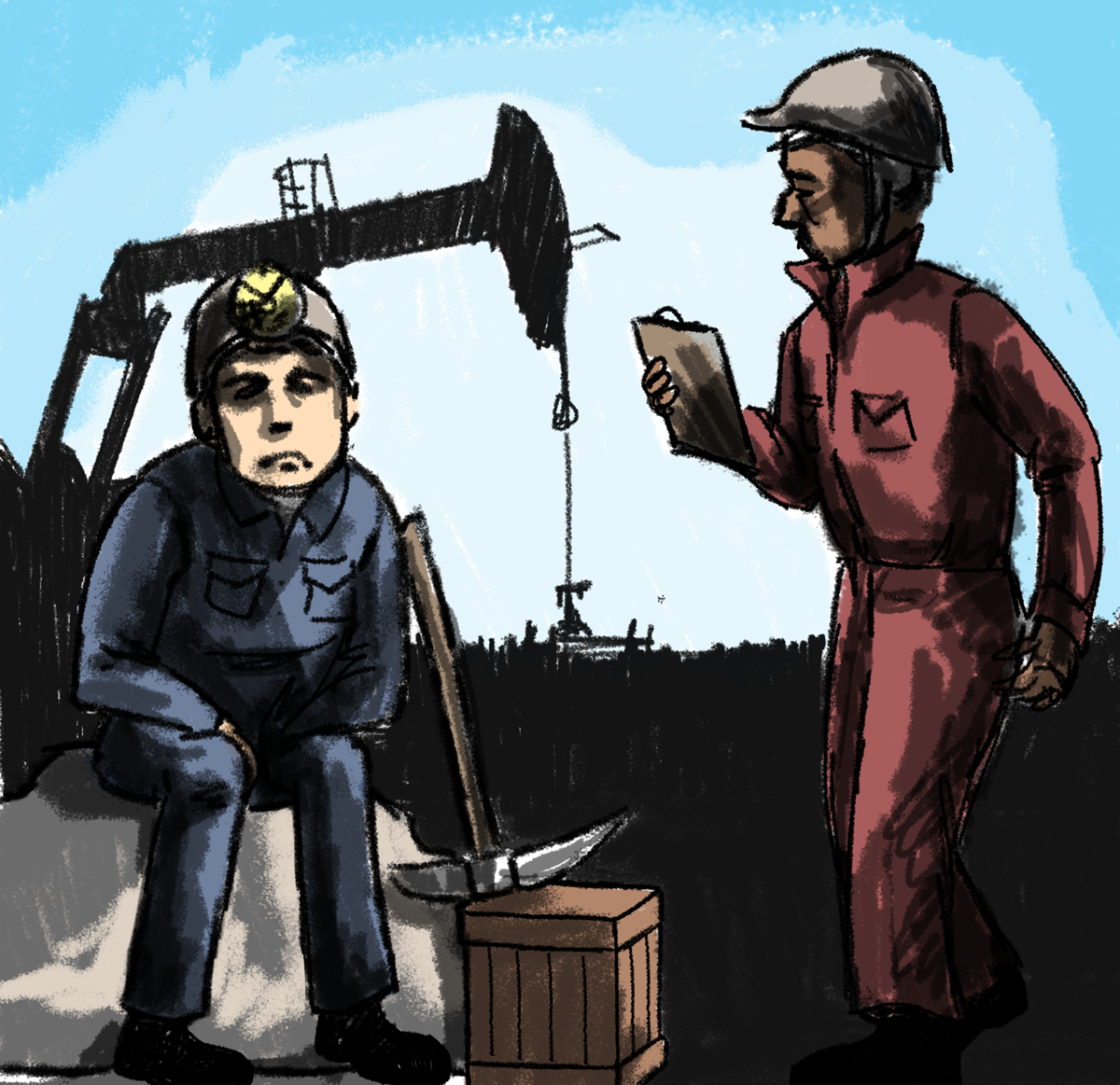West Virginia is in crisis.
The once proud and mighty United Mine Workers of America is now a shadow of itself, these days raging less against the boss and more against federal regulations designed to protect their communities. It has the highest rate of opioid-related deaths in the nation, and 17.9 percent of its population lives below the poverty line. In West Virginia, there is no need to fear a bleak dystopia; for many, it has already arrived. If West Texas oil field workers do not organize themselves to demand a fair transition from an extractive energy model to a renewable one, West Virginia could be a look into their future.
The story of West Virginia coal miners is an American tragedy. Suffering under brutal exploitation by unaccountable mine owners, the West Virginia coal miners began to organize themselves into the United Mine Workers union in 1920. The repression these workers faced was so acute that it sparked what came to be known as The Battle of Blair Mountain, the largest armed uprising on U.S. soil outside the Civil War. These heroic workers faced down 3,000 armed company goons, and the uprising only ended when the US Army was forced to intervene. Still, the workers persevered to secure unionization in 1933, creating one of the strongest forces for workers’ rights in U.S. history.
Yet the leadership of the UMWA became conservative over time, fighting to maintain an industry that was clearly unsustainable. Unstoppable twin forces have eroded and ultimately destroyed a once proud institution. On one hand, increased automation has decimated West Virginia’s working class, producing more coal than ever with only a fraction of the labor necessary. On the other, renewable energy has exploded, particularly in China, who is leading the way on renewable investments, beginning to cut into the market share for fossil fuels.
The petroleum industry has not yet been hit as hard as coal, but the same forces that crushed the proud coal miners will do the same to oil workers if they stand idly by. The Casper Star-Tribune reported in June 2017 “the long-term trend in the [petroleum] industry, and in most industries, is toward reduced manpower as technology improves and the cost to deploy new methods becomes cheaper.” Business journals are already discussing the important environmental benefits of a shift toward renewable energy. Oilfield workers who stick their heads in the sand over this will only be hurting themselves and their families.
However, there is hope. A study by Harvard Business Review found that the “growth of solar-related employment could benefit coal workers, by easily absorbing the coal-industry layoffs over the next 15 years and offering full-time careers.” According to Forbes, the renewable energy market is booming. All energy workers facing displacement could have well-paying jobs.
One thing all oilfield workers know, however, is no one is going to come and do it for them. If you want something done, and done well, you have to work hard, make sacrifices and earn it. Multi-billion dollar oil executives are not going to save you. Politicians are not going to save you. If oilfield workers want their children to have a future, it’s time to buckle down, get organized and fight for an energy transition that will save not just West Texas but the world.
Categories:
Don’t West Virginia my Texas
October 14, 2017
Photo Illustration by Kennedy Swift | Staff Illustrator
0
Donate to The University Star
Your donation will support the student journalists of Texas State University. Your contribution will allow us to purchase equipment and cover our annual website hosting costs.
More to Discover








